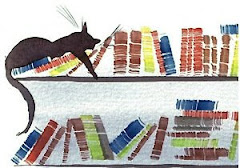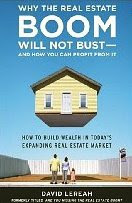The return of "stagflation" to the American economy (a word almost forgotten by the media, as serious inflation had not been a problem for 27 years in the US) and the combination of inflation with a possible recession triggered by the housing market slump seemed unthinkable since Alan Greenspan's stewardship at the FED started working its magic.
Now, the word "stagflation" is popping up in the headlines of every newspaper: The annualized inflation rate for the past three months has been 6.8 percent, while unemployment is going up and growth is slowing, as Ben Bernanke said yesterday. The prices of oil and of gold hit new highs every week, while the dollar continues to drop to new lows compared to the Euro and other world currencies.
This is serious stuff -- and Bush's "stimulus" packages, will only make things worse because it's not a problem of lackof demand but a problem of lack of trust inside the overgrown financial and banking sector.
If the Republican party wanted to do everything to stop John McCain from winning the presidency this fall, it would implement an economic policy exactly like the one that is developing right now. There is no way that any Republican can hold the White House if the economy starts looking like that of Jthe late Seventies, that made President Ronald Reagan. Of course, the Democratic Congress this year will not even consider passing any legislation to prevent the crash.
Whoever will enter the White House on January 20, 2009, will have a task as formidable as the one of Franklin Roosevelt's in March 1933.
MORE MONEY THAN DURING WORLD WAR II...
SATURDAY NIGHT LIVE
- "It was so cold today, I was shaking like Sarah Palin taking a geography test" (David Letterman).
THE GREATEST POLITICAL ADS OF ALL TIMES
SOURCES
WHAT BARACK IS READING ON THE PLANE

WHAT BARACK IS READING WHEN FORMING HIS CABINET

READING OPPORTUNITIES... MAYBE

STILL IN PRINT?

"Despite the Bush Administration's current unpopularity, the Republican domination of American politics is unlikely to end anytime soon." (2007)
STILL IN PRINT?

"Continued low interest rates, a healthy boomer population, should keep the market healthy for at least the next 10 years." (2006)
STILL IN PRINT?

"The Democratic Party can no longer field a serious presidential challenge." (2003)
ARCHIVE
-
▼
2008
(152)
-
▼
February
(15)
- Will 2008 Be a Remake of 2004? The Role of Working...
- The Return of Stagflation and Its Political Conseq...
- Magic Moments/2: The President as Hostage
- Arthur Miller, Where Are You When We Need You?
- Magic Moments/1: The Candidate as Messiah
- It's the economy, stupid!
- Money and Planning, or Message and Listening to th...
- This campaign is for the Democrats to lose
- Castro resigns: Will the American Obsession with H...
- Election 2000: listening to the other side
- Independents and Reagan Democrats: do they matter?
- Election rigging in Harlem?
- This week, you may want to read...
- Democracy and Culture
- A Matter of Personality?
-
▼
February
(15)
INDEX
- Alaska (4)
- Bank lobby (1)
- Breaking News (6)
- Crime and Politics (1)
- Cuba (1)
- Defense Policy (1)
- Democratic party (44)
- Economy (17)
- Electoral College (6)
- Financial Crisis (1)
- Florida (4)
- Foreign Policy (2)
- George W. Bush (3)
- Historical Documents (1)
- House of Representatives (2)
- In the News (7)
- Judicial Elections (1)
- Late night shows (1)
- Long-term political trends (10)
- Media and Elections (4)
- New Books (2)
- Oil lobby (2)
- Political Communication (8)
- Political culture (2)
- Political structures (1)
- Politicians as performers (2)
- Poverty (1)
- Public and Private in American Politics (3)
- Racism in American society (4)
- Religion and Politics (3)
- Republican party (22)
- Robert Kennedy (1)
- Ronald Reagan (1)
- Satire (3)
- Technology (1)
- Turnout (8)
- Vice president (1)
- Vote Fraud (2)
- Welfare (1)
- White Working Class (10)






